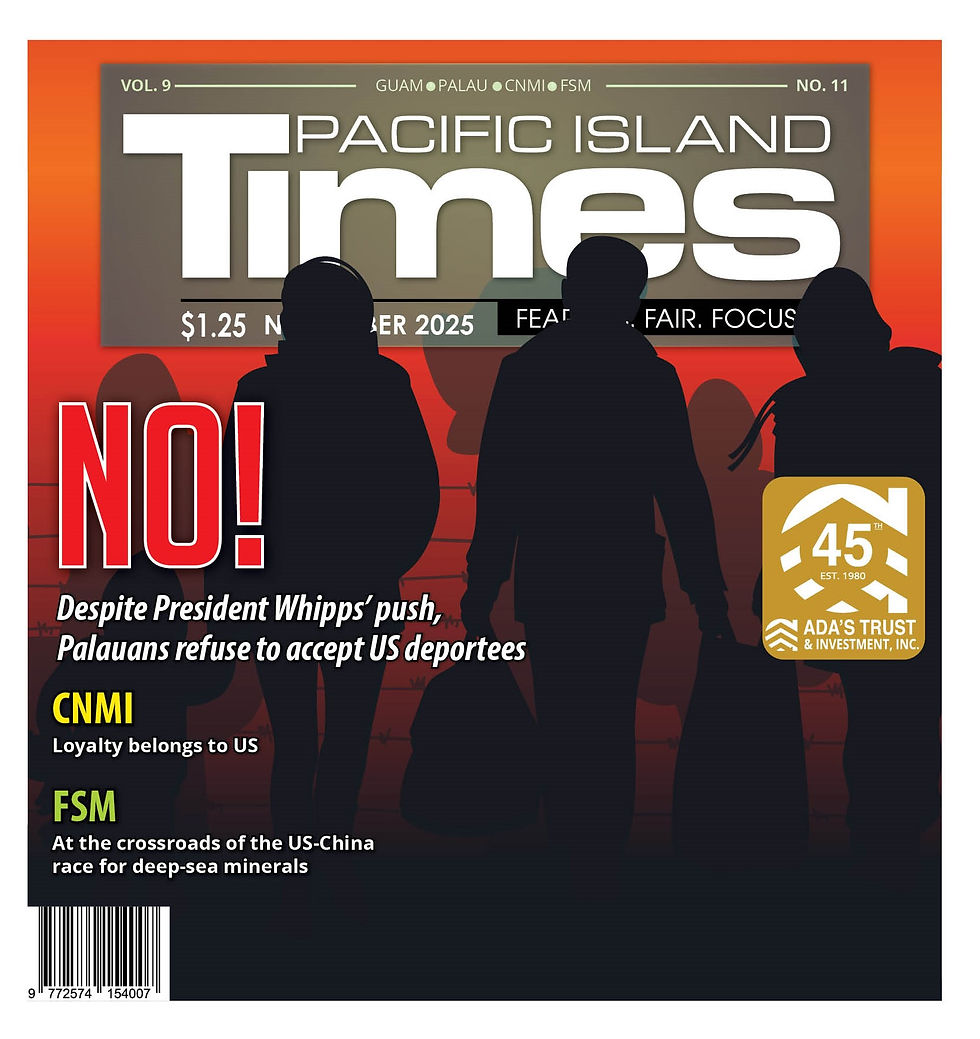Climate aid moving in the slow lane; FSM, Tonga call for prompt support
- Admin

- Nov 20, 2025
- 2 min read

By Mar-Vic Cagurangan
Climate financing should be readily available to tap for urgent responses to weather events affecting vulnerable islands, according to Pacific island delegates to the 30th UN Climate Change Conference.
Head delegates from the Federated States of Micronesia and Tonga said that the threats of climate change outpace the mobilization of global support.
“Every year, island nations, such as ours, come to this forum with a growing list of loss and devastation,” said Jeem Lippwe, the FSM's permanent representative to the UN.
“Finance is the fuel; without it, the engine of climate ambition stalls,” Lippwe said, noting that the FSM is losing ground to erosion, while its crops are threatened by saltwater intrusion.
More than 80 nations gather in Belém, Brazil this week for COP30, where they tackle the implementation of existing climate accords and action agenda, including the fulfillment of pledges and financing goals.
“As public finance levels continue to decline, Tonga echoes the call for a renewed emphasis on grant financing, in recognition of the challenges we face in terms of our limited fiscal space,” Paula Ma’u, Tonga’s chief secretary, said during the high-level ministerial dialogue on climate.
“On loss and damage, we stress that relevant financial instruments must go beyond slow-onset event responses,” Ma’u said.
He stressed an urgent need for "predictable, pre-arranged and readily accessible finance for sudden-onset extreme weather events" outside of the scope of formal projects.
“Such finance should be fast-disbursing and designed with the realities of (small island developing states) like Tonga in mind, including through the use of parametric and contingency-based mechanisms,” Ma'u said.

Earlier this month, Azerbaijan’s COP29 and Brazil’s COP30 Presidencies unveiled the “Baku to Belém Roadmap,” a blueprint to mobilize at least US$1.3 trillion a year in climate finance for developing countries by 2035.
Mukhtar Babayev and André Corrêa do Lago, COP presidents, noted that the target is within reach, but will require significant effort from traditional sources as well as the development of new and innovative financial mechanisms.
Progress toward the new finance goal must drive the next leap in implementing the commitments already made, they said.
While welcoming the launch of the Baku to Belem Roadmap, Ma’u raised concerns about its focus on scaling up private finance, noting that blended
finance has had limited success in mobilizing capital at the scale and speed required.
Lippwe, for his part, said the FSM, like other small island states, has been drawing on scarce domestic resources to address climate-related threats because the promised global community support a decade ago moves at a snail's pace.
The Baku to Belem Roadmap seeks to develop concrete financing pathways to hit the $1.3 trillion goal by 2035, advising developed countries to work together on a delivery plan and to share their intended contributions.
Subscribe to
our monthly
digital edition






